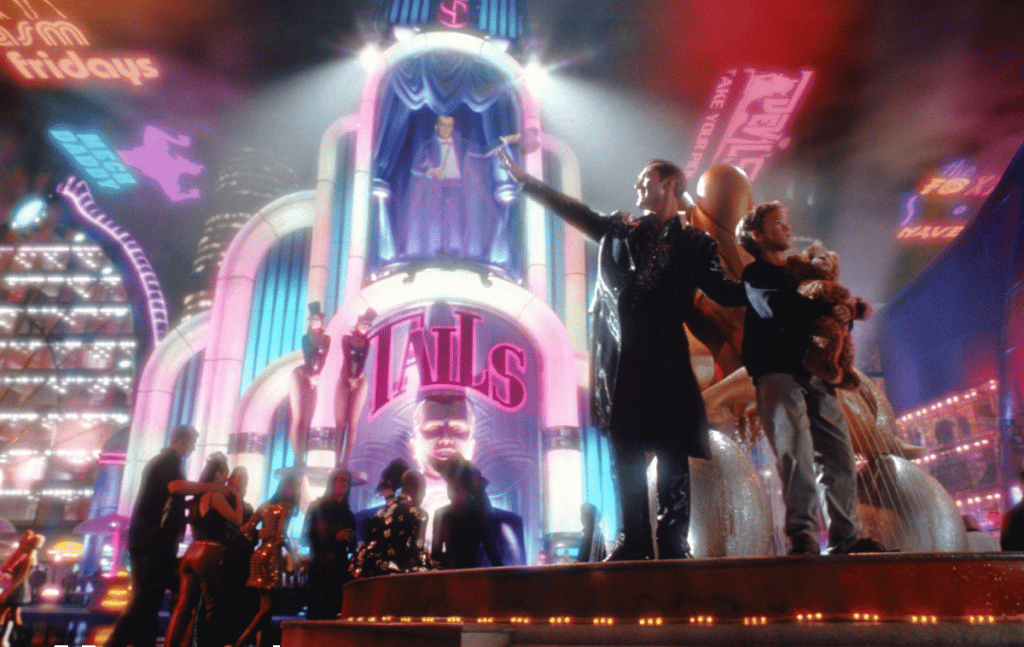At 20, the Stanley Kubrick Steven Spielberg science-fiction collaboration remains a moving, haunting study of the human heart.
Almost every story about robots comes around to being about personhood and humanity. The most unadventurous of stories only bother to address Luddite questions of whether androids could ever be considered living, sentient beings. The best works, though, don’t merely interrogate whether a robot could be human, but rather, use the idea of a mechanical man to probe the question of what makes us human.
Great works like A.I. Artificial Intelligence, a remarkable film that turns twenty this year, ask those deeper questions about what defines us as human beings. They explore what quirks and qualities we possess as a species that we can claim as unique. And they use an outsider and imitator to bring these grand ideas into focus, in the same way that learning a foreign language can help us to better understand our native tongue.
In that spirit, A.I. tells the story of a young “mecha” who wants to be a real boy. The film wears its Pinocchio influences on its sleeve, and to that end, offers an updated, sci-fi-infused version of the classic fairy tale. David (Haley Joel Osment) is an android child who wonders what it would take for him to become human and thus, in his mind at least, worthy of his mother’s affections.

The answer legendary director Steven Spielberg and co-writer Ian Watson present is an intriguing one – love. What distinguishes David from his dime-a-dozen mecha counterparts is the fact that he can “imprint” on his mother. In other words, he can develop an innate attachment to her beyond his control. But A.I.’s version of this sort of attachment is not the trite Hallmark Holiday version of love. The film presents this core emotion as something far more melancholy, and far more heartrending in its conception of “love” as an essential part of humanity.
At its base, A.I. posits that humanity’s distinguishing feature is our ability to love something so much that we yearn for it even when it’s wholly unobtainable. We reach for simulacra and last gasps of things no longer within reach. The kind of love that makes us human forges attachments that run so deep into the heart that they survive even the people for whom we feel that love in the first place. Indeed, it can drive us to try to recapture things we know are forever lost.
This is the crux of A.I. Spielberg repeatedly presents people whose humanity is revealed through attempts to revive their loved ones, attempts to find something, some way to fill the holes punched in their hearts by the loss of those closest to them. Monica Swinton (Frances O’Connor), David’s would-be mother, initially accepts David as a substitute for her own lost child, Martin (Jake Thomas) – preserved in suspended animation after misfortune ripped him away from her. Though reluctant at first, Monica soon finds David a means to ease her pain, to indulge in an inevitably misguided attempt to resurrect her real son, after a fashion.
In addition to its study of love, A.I. examines the morality of creating something that can love, that must love, but whose deeply-felt affections may not always be returned.
The same motif repeats when David reaches his creator’s workshop and discovers he was made in the likeness of the famed Professor Hobby’s (William Hurt) own dead son. David’s very visage is a living monument to another lost child, a doomed attempt to hold onto something irrevocably lost. The love Hobby still holds for his son is too much for the android-designer to let go.
In addition to its study of love, A.I. examines the morality of creating something that can love, that must love, but whose deeply-felt affections may not always be returned. The first act grapples with this issue most directly and stands as the tightest of the film. Monica learns to love David, only for she and her husband to see their flesh and blood son unexpectedly return to life. Slowly but surely, they reach the decision that David, for incorrect but understandable reasons of safety, no longer has a place in their family.
This opening act ultimately tells a heartbreaking story of a young boy becoming a seemingly inextricable part of a home full of love, only to be rejected when he no longer makes sense there. Its closing scene — where Monica abandons him in the woods, and he offers impassioned pleas and promises that he’ll be better, be realer, to no avail — is utterly devastating.

It also kick-starts the middle act of David’s Pinocchio-like adventures, which prove to be the weakest element of the film. There’s thematic meat to the “Flesh Fair” portions of A.I., which convey the fears of a human population concerned that they’re being replaced by technology in a way that feels terribly prescient two decades later. These technological anxieties reflect the influence of Stanley Kubrick, who developed the project before passing it on to Spielberg.
In particular, many sequences at this ghoulish carnival explore the ways in which children are uniquely situated to earn our sympathies. Their mere presence triggers an innate protective instinct that manages to cut through even the chauvinistic prejudices of a violence-hungry crowd. However, for the most part, these scenes serve to kill time by filling in some intermediate struggles between the core events of David’s ejection from his home and his becoming a real boy.
The second act centers on David’s adventures with Gigolo Joe (Jude Law) and Teddy (Jack Angel), who serve as his companions, a la Jiminy Cricket. Spielberg and company excel at world-building and crafting gorgeous, otherworldly set pieces that still look superb despite their age. Despite their pleasures, these sequences ultimately scan as frustrating detours from the larger story being told. The Flesh Fair, Rouge City, and the sunken bones of Old New York are entertaining as standalone pieces, but they lack the thematic coherence of A.I.‘s opening and closing acts.
Catharsis, however, comes in the film’s oft-maligned endgame. David ultimately waits two thousand years for salvation. Upon awakening in the far future, he meets ultra-advanced, nigh-alien androids who function as the synthetic equivalent to the blue fairy that David is so desperate to find. The strangeness of this may have put audiences off, but these figures deftly represent the effectively supernatural force that can intervene and grant David’s deepest wish.

And they do. What David wants more than anything in the world is to return to his mother. So these “Specialists” (Ben Kingsley) revive her for one more day. It is in that final montage — where David’s finally able to celebrate his birthday, to tell his mother his life story, to share in the joys and the pains of love and loss — that he truly becomes a real boy. What makes him so is the star-crossed project he shares with Professor Hobby and Monica Swinton herself – a desire to recapture something lost because of his love for someone. He cannot turn his love off merely because Monica is gone.
David’s revival of his “mother,” his desperation to enjoy one last day with her, even if it means resorting to a fleeting simulacrum, proves that he has a soul. When he gets to spend that one last glorious day with her, it’s not just the culmination of this story. It’s a cosmic reward for his steadfastness and a confirmation that David has become a human being, in every meaningful sense of the term. It’s moving when he hears those words he has so desperately wanted to hear – that his mother loves him, that she’s always loved him.
On that day, David becomes both “real” and whole. The gaping hole inside of him is filled, if only for a brief time. In the end, David wants without reason. He wants beyond reason. And like the little wooden boy who inspires him and those telling his story, eventually, his wish is granted. With that gift, he knows the profound pain and immense joy that comes with being human.